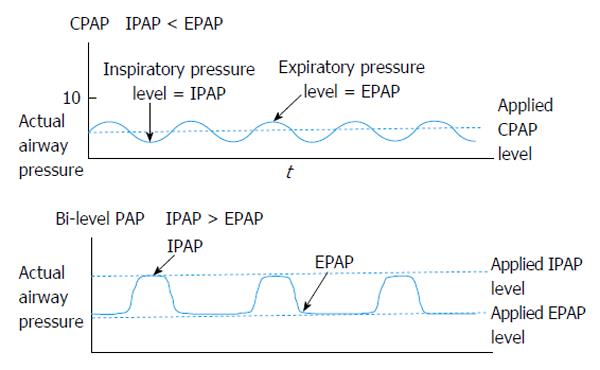What is continuous positive airway pressure therapy
Table of Contents
Table of Contents
Sleep disorders and chronic pain conditions are a difficult mix to cope with. A lack of sleep can exacerbate chronic pain, and chronic pain can make it difficult to sleep. The negative effects of these two conditions on each other can create a vicious cycle. But what if there was a way to break this cycle?
Continuous positive airway pressure (CPAP) therapy is a treatment option that can help individuals with sleep apnea and other breathing-related sleep disorders. Not only can it improve sleep quality, but it can also help manage chronic pain conditions that are worsened by poor sleep.
CPAP therapy works by providing continuous positive air pressure to the airways, keeping them open during sleep and preventing sleep apnea. This therapy can have a positive impact on individuals with sleep apnea, as well as those with chronic pain conditions, who can experience improved quality of life with better sleep.
In summary, CPAP therapy can be a game-changer for individuals with sleep disorders in chronic pain conditions. It provides a non-invasive form of treatment that not only improves sleep quality but can also help manage chronic pain conditions that are worsened by poor sleep.
How CPAP Therapy Works for Sleep Disorders in Chronic Pain Conditions
When I was first diagnosed with sleep apnea and chronic pain, I didn’t quite understand how CPAP therapy would help me. However, after using a CPAP machine for a few weeks, I noticed a significant improvement in both my sleep quality and pain levels.
With CPAP therapy, the machine provides a continuous flow of air pressure through a mask while I sleep. This helps keep my airways open, preventing apneas from occurring. By getting better quality sleep, my chronic pain is also better managed because my body is receiving the restorative sleep it needs to heal and recover.
The Benefits of CPAP Therapy for Chronic Pain Conditions
Aside from improving sleep quality, CPAP therapy can also help manage chronic pain conditions. When our bodies don’t get enough restorative sleep, it can lead to increased inflammation and worsened pain levels.
CPAP therapy has been shown to improve pain levels in individuals with chronic pain conditions, such as fibromyalgia and arthritis. Getting better quality sleep can help reduce inflammation and promote healing, leading to a reduction in pain levels.
How to Incorporate CPAP Therapy into Your Treatment Plan
CPAP therapy is a treatment option that should be prescribed by a physician or sleep specialist. After a sleep study is conducted to determine if sleep apnea or other breathing-related sleep disorders are present, a CPAP machine can be recommended if appropriate.
There are different types of CPAP machines available, and it’s important to find the right one for your individual needs. The mask should fit comfortably, and the machine should be easy to use and adjust to your breathing needs.
The Potential Side Effects of CPAP Therapy
Some individuals may experience side effects when using a CPAP machine, such as dry mouth, nasal congestion, or skin irritation from the mask. These side effects can often be managed with the appropriate adjustments and accessories.
Conclusion of Continuous Positive Airway Pressure Therapy and Sleep Disorders in Chronic Pain Conditions
CPAP therapy is a great option for individuals with breathing-related sleep disorders and chronic pain conditions. It can provide better quality sleep and improved pain management without relying on medications or invasive treatments. If you think you may benefit from CPAP therapy, speak to your physician or sleep specialist to see if it’s appropriate for you.
Question and Answer
How does CPAP therapy work?
CPAP therapy delivers a continuous flow of air pressure through a mask while you sleep, keeping your airways open and preventing apneas from occurring.
Can CPAP therapy help manage chronic pain conditions?
Yes, CPAP therapy has been shown to improve pain levels in individuals with chronic pain conditions by promoting better quality sleep and reducing inflammation.
Are there any side effects to using a CPAP machine?
Some individuals may experience side effects such as dry mouth, nasal congestion, or skin irritation from the mask, but these can often be managed with appropriate adjustments and accessories.
Do I need a prescription for CPAP therapy?
Yes, CPAP therapy should be prescribed by a physician or sleep specialist after a sleep study is conducted to determine if a breathing-related sleep disorder is present.
Gallery
Continuous Positive Airway Pressure (CPAP) Devices Market

Photo Credit by: bing.com / pressure positive airway continuous cpap devices types market machine breathing bipap different insights premium press release
Mechanism Of Action Of Continuous Positive Airway Pressure Therapy IV

Photo Credit by: bing.com / airway mechanism
Continuous Positive Airway Pressure Therapy | Nursing Information

Photo Credit by: bing.com / pressure positive airway continuous education health nursing information therapy choose board
What Is Continuous Positive Airway Pressure Therapy? | GenesisCare

Photo Credit by: bing.com / continuous airway positive pressure
Continuous Positive Airway Pressure | Treating Sleep Apnea - YouTube

Photo Credit by: bing.com / airway positive pressure continuous




